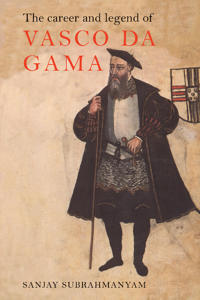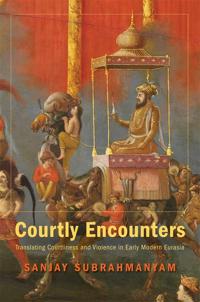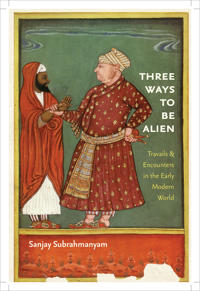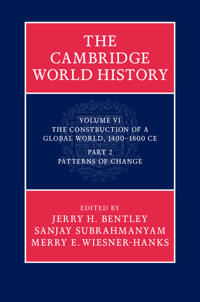Writing the Mughal World: Studies on Culture and Politics (Övrig)
avMuzaffar Alam, Sanjay Subrahmanyam
ISBN: 9780231158107 - UTGIVEN: 2011-08-23Between the mid-sixteenth and early nineteenth century, the Mughal Empire was an Indo-Islamic dynasty that ruled as far as Bengal in the east and Kabul in the west, as high as Kashmir in the north and the Kaveri basin in the south. The Mughals constructed a sophisticated, complex system of governmen[...]
Writing The Mughal World (Pocket)
avMuzaffar Alam, Sanjay Subrahmanyam
ISBN: 9780231158114 - UTGIVEN: 2011-08-23The Portuguese Empire in Asia, 1500-1700: A Political and Economic History, (Häftad)
avSanjay Subrahmanyam
ISBN: 9780470672914 - UTGIVEN: 2012-04-30The Career and Legend of Vasco Da Gama (Häftad)
avSanjay Subrahmanyam
ISBN: 9780521646291 - UTGIVEN: 1998-10Vasco da Gama (?1469?1524) is well known as one of a generation of discoverers, along with Magellan, Cabral, and Columbus. Yet little is known about his life, or about the context within which he ?discovered? the all-sea route to India in 1497?99. This book, based on a mass of published and unpublis[...]
Courtly Encounters (Inbunden)
avSanjay Subrahmanyam
ISBN: 9780674067059 - UTGIVEN: 2012-10Cross-cultural encounters in Europe and Asia in the sixteenth and seventeenth centuries brought the potential for bafflement, hostility, and admiration. The court was the crucial site where expanding Eurasian states and empires met and were forced to make sense of one another. By looking at these in[...]
Three Ways to be Alien (Häftad)
avSanjay Subrahmanyam
ISBN: 9781584659921 - UTGIVEN: 201106Sanjay Subrahmanyam's Three Ways to Be Alien draws on the lives and writings of a trio of marginal and liminal figures cast adrift from their traditional moorings into an unknown world. The subjects include the aggrieved and lost Meale, a "Persian" prince of Bijapur (in central India, no less) held [...]
The Construction of a Global World, 1400-1800 CE (Inbunden)
avJerry H. (EDT) Bentley, Sanjay (EDT) Subrahmanyam, Merry E. (EDT) Wiesner-Hanks
ISBN: 9780521192460 - UTGIVEN: 2015-05The era from 1400 to 1800 saw intense biological, commercial, and cultural exchanges, and the creation of global connections on an unprecedented scale. Divided into two books, Volume 6 of the Cambridge World History series considers these critical transformations. The first book examines the materia[...]









